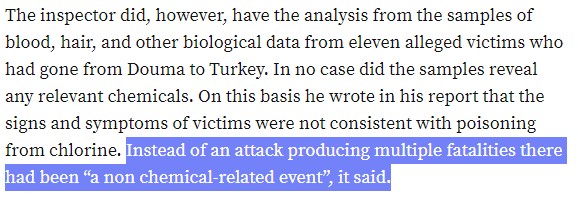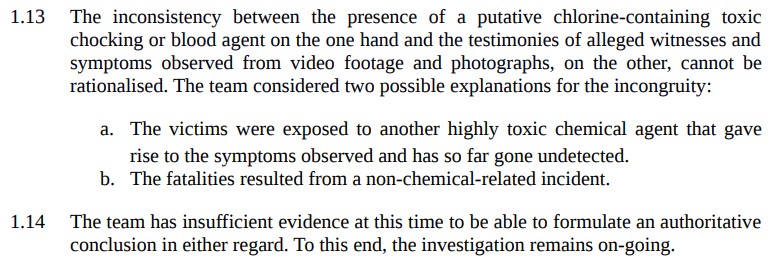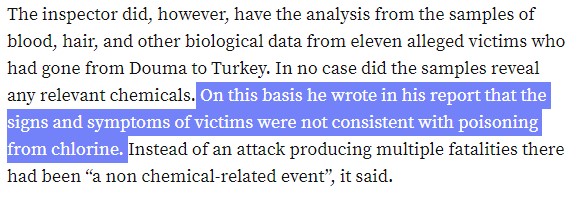A document released by WikiLeaks on Saturday shows that two key allegations reportedly made by the OPCW whistleblower are untrue.
The whistleblower, known as "Alex", first surfaced at a closed meeting in Brussels two months ago. He claims there were "irregularities" in the OPCW's investigation of a suspected chemical attack in the Syrian city of Douma but, so far, has made no public statement. The only available accounts of his allegations come from sympathetic third parties.
According to those third-party accounts, his central claim is that senior OPCW figures – possibly under political pressure – cherry-picked evidence in order to reach a "pre-ordained" conclusion.
As an example of this manipulation, he claims that in the summer of 2018, when the OPCW was preparing to issue an interim report on Douma, investigators who had been working on the ground in Syria were repeatedly sidelined and had their views ignored. We are told that this resulted in huge arguments within the OPCW.
The document at the centre of these arguments is a draft of the interim report which had been compiled by members of the Douma investigative team. Their draft, we are told, was not well received and OPCW bosses responded by producing their own heavily doctored version of it.
In an article for Counterpunch, Jonathan Steele mentions two specific statements which Alex claims were in the draft report but later redacted.
One of these claims is that the draft said there had been "a non chemical-related event" in Douma:

The draft report itself was one of a series of OPCW-related documents posted online by WikiLeaks on Saturday – and it's very clear that the claim asserted by Alex is untrue.
The draft does not say there was "a non chemical-related event". What it does say is that "a non chemical-related incident" in Douma was one of the possibilities considered in connection with the reported deaths. It adds that investigators have "insufficient evidence at this time to be able to formulate an authoritative conclusion" but will continue to work on it.

Another of Alex's reported claims is that the draft said the signs and symptoms of alleged victims were "not consistent with poisoning from chlorine". This has been presented in a way that suggests the draft ruled out a chlorine attack on those grounds:

However, the draft only says that some of the signs and symptoms were not consistent with chlorine and draws no firm conclusion about them.
Note: I shall be studying WikiLeaks' batch of documents in more detail over the next few days and hope to have a more detailed report later.

 RSS Feed
RSS Feed
